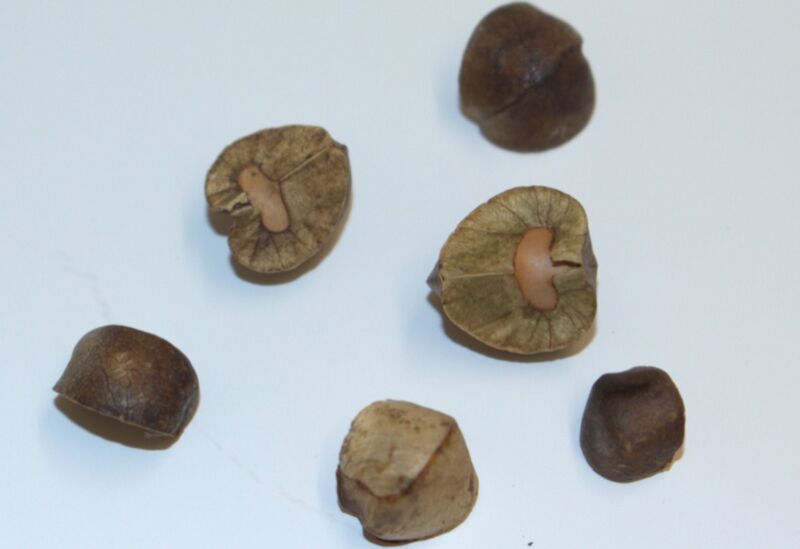Study: Mexican jumping beans use random walk strategy to find shade

Enlarge / Mexican jumping beans are actually seed pods from a shrub native to Mexico with moth larvae living inside. (credit: Devon McKee and A. Pasha Tabatabai/APS 2023)
Mexican jumping beans have been a curiosity for many an inquisitive child, and yes, they really do "jump," thanks to the presence of tiny moth larvae inside the seed pods. According to a recent paper published in the journal Physical Review E by physicists at Seattle University, those jumps can help the moth larvae inside find shade to survive on hot days. And the jumping movements seem to follow a random walk strategy in order to do so.
The notion of a random walk is based in part on the physics concept of Brownian motion. Even though this technically describes random collisions between particles, it's a useful model that can easily be adapted to lots of different systems, biological, physical, or otherwise. The concept dates back to 1827, when a scientist named Robert Brown was studying pollen particles floating in water under a microscope. He noted a strange jittery motion and thought the pollen might perhaps be alive. But when he repeated the experiment using particles of dust, which he knew were not "alive," he still saw the jittery motion.
Brown never determined what caused the motion, but Albert Einstein did, in a 1905 paper in which he sought to confirm the existence of atoms and molecules. Einstein's relevant insight was that molecules in a fluid like water would randomly move about and collide with other small particles suspended in the fluid, like pollen or dust, giving rise to the "jittering" Brown had observed some 80 years earlier.